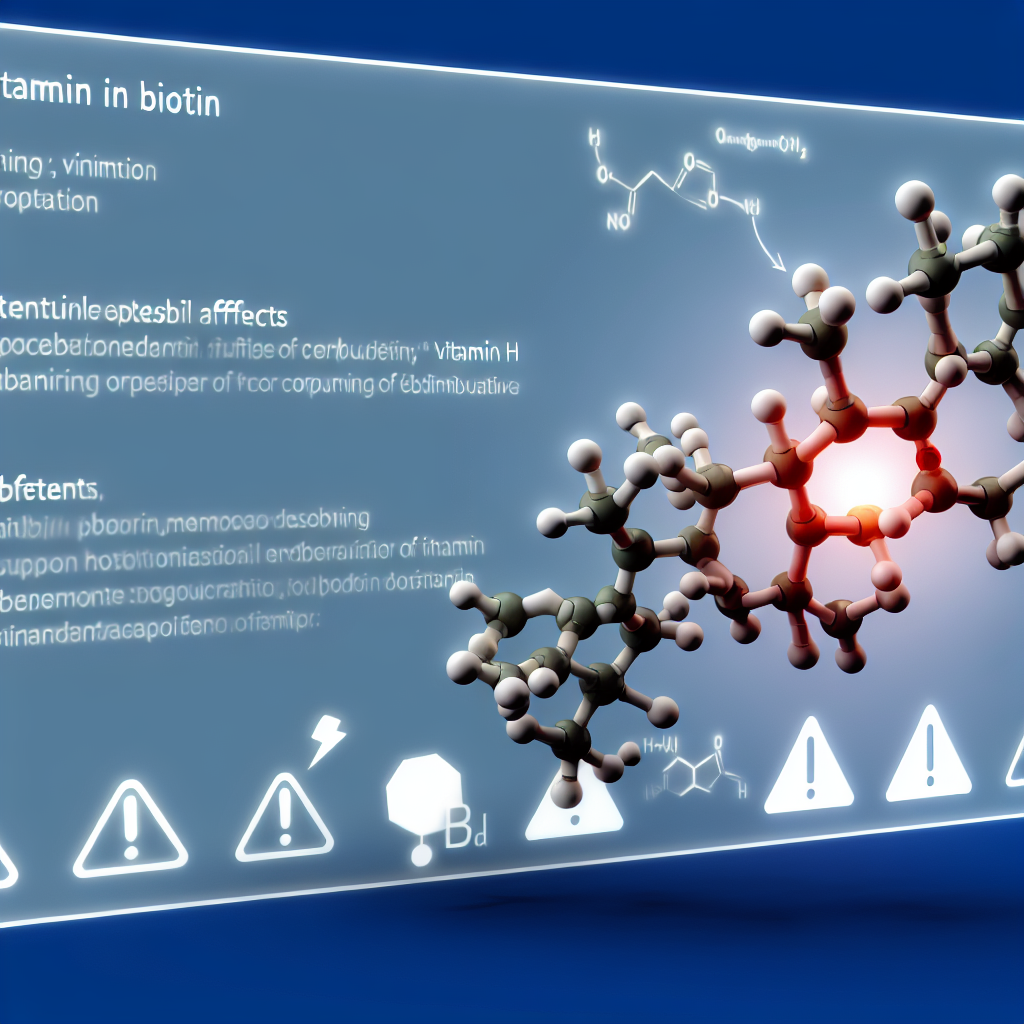Biotin, also known as Vitamin H, has become one of the most popular health and beauty supplements on the market. From boosting hair growth to strengthening nails and supporting energy production, it’s no wonder people are eager to add biotin to their daily routines. But behind the hype lies an important question: Can biotin cause side effects?
In this guide, we’ll explore biotin’s potential downsides, including risks of overuse, interference with diagnostic tests, and more. You’ll also learn practical tips for safe supplementation, ensuring you can enjoy the benefits without compromising your health.
What Is Vitamin H (Biotin)?
The Basics of Biotin and Its Benefits
Biotin is a water-soluble B-vitamin (B7) that helps enzymes break down food into energy. This makes it a key player in maintaining overall bodily function. But aside from its metabolic role, it’s widely recognized for promoting healthy hair, glowing skin, and strong nails.
Natural sources of biotin include foods like eggs, almonds, salmon, spinach, and sweet potatoes. For most people, eating a varied and healthy diet provides plenty of biotin. However, those with deficiencies or specific health and beauty goals often turn to biotin supplements.
Common Side Effects of Biotin Supplements
Skin Reactions: Breakouts and Rashes
Despite its reputation for supporting skin health, biotin can sometimes cause acne and rashes, especially in individuals taking high-dose supplements. Excessive biotin may disrupt normal production of sebum, a natural skin oil, leading to clogged pores and inflammation.
If you notice breakouts around your jawline, chin, or cheeks after starting biotin, consider lowering your intake or switching to food-based sources.
Digestive Upset
Mild digestive issues, such as nausea, cramping, or bloating, have been reported in some individuals taking biotin supplements. To minimize discomfort, try smaller doses and ensure you’re taking supplements with food.
Disruption to Lab Tests
One surprising side effect of biotin is its ability to interfere with blood test results. Large doses of Vitamin H can distort lab readings, particularly for thyroid hormones and cardiac markers. This is especially important if you’re undergoing diagnostic tests, as inaccuracies could lead to unnecessary concerns or misdiagnoses.
To avoid this, inform your healthcare provider if you’re taking biotin before any lab work.
Risks of Biotin Overdose: Can You Take Too Much?
High Biotin Dosages and Overdose Symptoms
Biotin is generally regarded as safe because it’s water-soluble, meaning excess amounts are flushed out via urine. However, certain high-dose supplements—marketed at levels up to 10,000 mcg daily—may push your intake far beyond what your body actually needs.
Overuse of biotin can occasionally cause symptoms such as:
- Nausea or stomach upset
- Increased thirst or frequent urination
- Fatigue or sluggishness
- Restlessness or insomnia
While these issues are relatively rare, it’s important to stay within recommended dosage ranges to avoid unnecessary risks.
Biotin and Medication Interactions
Interference with Diagnostic Tests
A major side effect of biotin supplementation is its ability to skew lab results. Diagnostic tests for thyroid function and cardiac markers may return inaccurate results when biotin levels are elevated. These false readings can delay proper diagnoses or cause unnecessary treatments.
To prevent this, stop biotin supplementation three days before lab tests and inform your doctor about your use.
Biotin and Other Medications
While direct drug interactions are uncommon, individuals with certain medical conditions should proceed with caution. For example:
- Patients with diabetes may experience altered blood sugar regulation due to biotin’s effects.
- Those taking medication for epilepsy may find that biotin reduces drug efficacy.
Consult your healthcare provider if you’re taking medication to ensure biotin won’t interfere with your treatment plan.
How to Safely Use Biotin Supplements
Start with the Recommended Dosage
The daily recommended intake for biotin is 30-100 mcg. Some supplements go as high as 10,000 mcg, but larger doses aren’t always necessary unless prescribed by a doctor. Start with lower doses and monitor how your body reacts before increasing them.
Choose Natural Sources
Instead of jumping straight to supplements, try incorporating biotin-rich foods into your diet. Eggs, nuts, seeds, salmon, and leafy greens provide biotin naturally alongside other crucial nutrients.
Consult Your Healthcare Provider
If you’re unsure about biotin supplementation or have underlying health conditions, consult your doctor for personalized advice. They can recommend safe usage guidelines tailored to your needs.
Conclusion
Biotin, also known as Vitamin H, is an incredible nutrient known for its ability to enhance hair, skin, nails, and energy levels. However, as with any supplement, moderation and informed use are critical to avoid potential side effects.
Whether it’s acne, digestive discomfort, or interference with lab tests, being aware of Vitamin H side effects can help you make better choices. With proper dosing, a focus on natural sources, and a helpful conversation with your healthcare provider, you can enjoy the benefits of biotin while keeping your health in check.
Thinking about adding biotin to your routine? Take things slow, stay informed, and prioritize balance—because when it comes to your health, the smartest path forward is always the one built on knowledge and care.
